Court Marriage in Karachi in Cultural Perspectives of Pakistan
Court Marriage in Karachi represents a notable cultural shift within the broader context of Pakistan, especially in its urban landscape. Traditionally, marriages in Pakistan, including in cities like Karachi, have been family-driven, with parental approval and involvement considered essential. However, the rise of court marriage in Karachi marks a growing trend towards personal autonomy and individual choice. Younger generations, particularly in urban centers, are increasingly embracing this legal option as they prioritize freedom and personal decision-making over conventional family-arranged unions, reflecting modern social dynamics alongside traditional values.
Shifting Attitudes Toward Court Marriage in Karachi
Within the diverse communities of Pakistan, the perception of court marriage varies widely. On one side, it is celebrated for empowering individuals, allowing them to make decisions about their relationships independently of family pressures. Many young people in cities like Karachi view court marriage as an opportunity to marry for love and compatibility rather than familial expectations. This marks a progressive trend, particularly among youth who desire more control over their life choices.
These young individuals often see court marriage in Karachi as a means to assert their independence and embrace modernity without the lengthy traditions and customs that can come with arranged marriages. Court marriage also offers a straightforward legal process that provides couples with official recognition, further encouraging its acceptance among those seeking to take charge of their marital decisions.
Court Marriage and Cultural Resistance
Despite its growing popularity, court marriage faces resistance in more conservative parts of Pakistani society. In traditional and rural areas, some still view court marriage as a threat to cultural and family values. For these communities, arranged marriages remain the preferred method, and the idea of a couple independently choosing their partner can be seen as undermining familial authority and honor.
This skepticism often stems from concerns about court marriage disrupting the social fabric, especially when it bypasses the customs and rituals that define arranged marriages. Additionally, misconceptions and a lack of awareness regarding the legal rights and protections offered by court marriage further fuel this resistance. As a result, court unions may be viewed with suspicion, particularly in communities where family honor plays a significant role in marriage decisions.
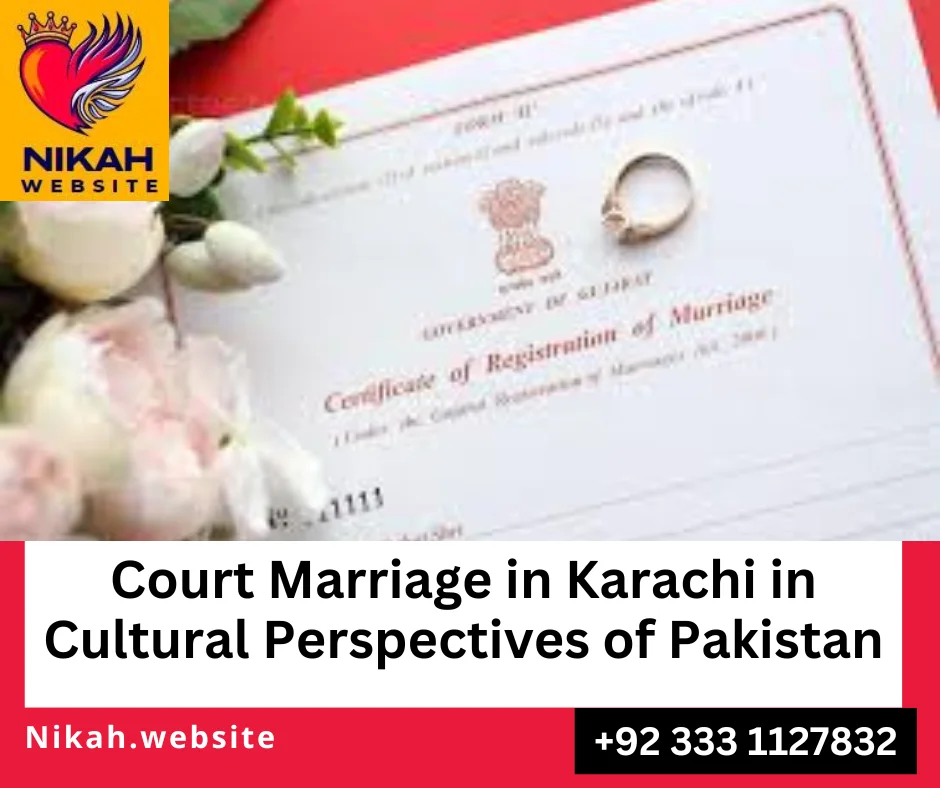
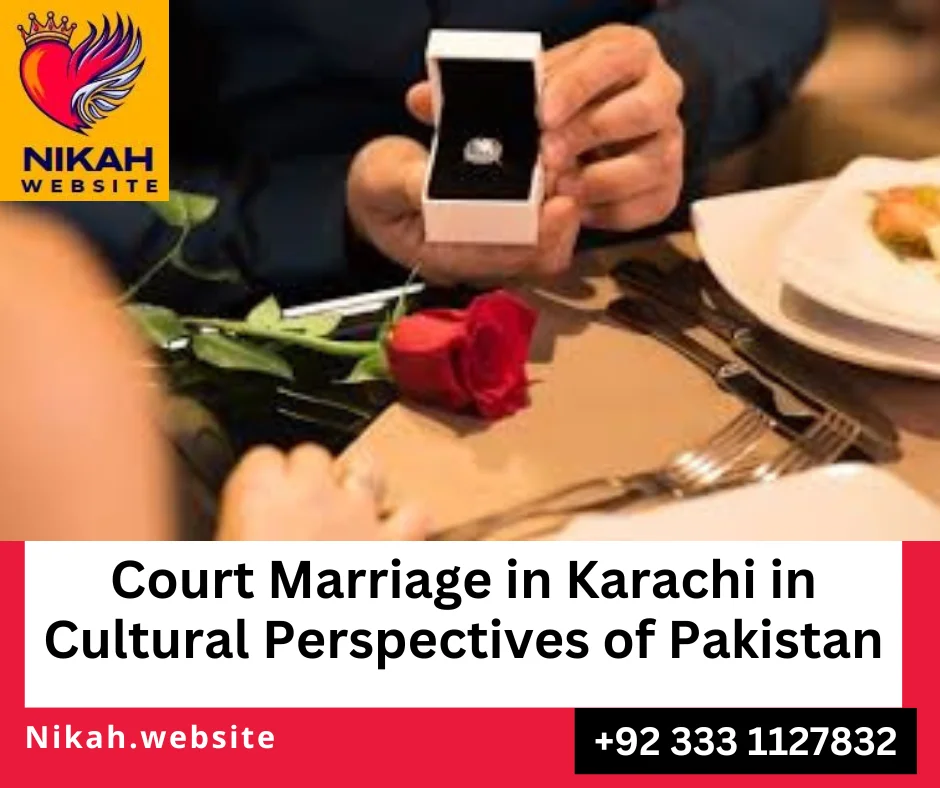
Navigating Court Marriage in Karachi
However, many couples who opt for court marriage in Karachi successfully navigate these cultural expectations. Open conversations with family members are often key to bridging the gap between traditional views and modern choices. By explaining the legal benefits and the importance of personal freedom, couples are gradually reshaping the narrative around court marriage, particularly in Karachi’s urban setting.
These discussions highlight the benefits of court marriage, such as the legal recognition of the relationship, the mutual consent of both parties and the relief from societal pressures that typically accompany traditional weddings. Couples who choose court marriage often advocate for the importance of personal choice and the legal framework that supports their union, helping to increase awareness and acceptance among skeptical family members.
Court Marriage: Bridging Tradition and Modernity
While court marriage offers a modern solution for many young couples, it also serves as a bridge between tradition and legal rights. It provides a legal avenue for couples who may otherwise face opposition from their families or communities due to their choice of partner. In this sense, court marriage not only reflects societal changes but also plays a vital role in protecting individual rights and ensuring the legal validity of marriages in Pakistan.
As court marriage continues to gain momentum in Karachi and beyond, it challenges traditional norms and opens up new possibilities for couples seeking a marriage based on mutual respect and consent. The growing acceptance of court marriage symbolizes a shift toward greater autonomy in marriage decisions, allowing individuals to define their relationships on their terms while still adhering to the legal and cultural frameworks of Pakistani society.
Court Marriage as a Modern Choice
In conclusion, court marriage in Pakistan, especially in Karachi, is a powerful reflection of the country’s evolving social landscape. It allows couples to step outside traditional expectations and choose a path that aligns with their values and desires. While court marriage is still met with some resistance, its rise among younger generations signals a broader cultural shift toward individual autonomy and modernity in marriage. Through this blend of legal protection, personal freedom, and mutual consent, court marriage continues to reshape how marriage is perceived and practiced across Pakistan.
Why Choose Court Marriage in Karachi?
Court marriage in Karachi offers an accessible, legal, and efficient path for couples looking to formalize their relationship. With legal professionals guiding them through the process, couples can rest assured that their marriage will be recognized both legally and religiously. Court marriage ensures that couples secure the rights and protections they are entitled to under Pakistani law, making it an increasingly attractive option for modern couples. Whether it’s for personal autonomy, legal protection, or ease of process, court marriage in Karachi offers an ideal solution for couples who wish to avoid the complexities of traditional marriage while ensuring their union is recognized by law.
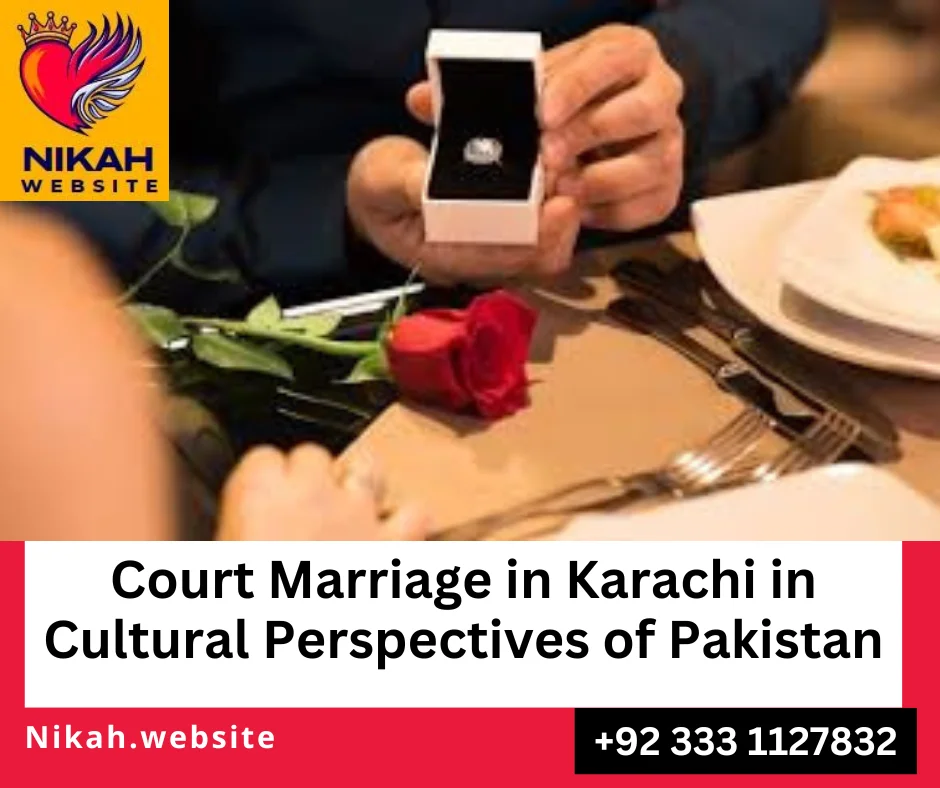

Challenges Faced by Couples in Court Marriages in Karachi
Embarking on a court marriage in Karachi can be a bold and exciting choice for many couples, symbolizing their independence and mutual commitment. However, while court marriage offers a streamlined legal process, it is not without its challenges. Couples often face a series of difficulties ranging from family acceptance to societal stigma, all of which can create obstacles on their journey to a legally recognized union.
Family Acceptance: A Key Challenge in Court Marriage
One of the most significant hurdles couples encounter during court marriage in Karachi is the lack of family acceptance. In many families, traditional values still dominate, and the idea of a court marriage can be viewed with skepticism or even outright rejection. Pakistani society, especially in Karachi, places immense value on family-arranged marriages, where the approval of parents and extended relatives is crucial. When couples opt for a court marriage, it often goes against these deeply ingrained cultural norms, leading to emotional stress and familial conflict. The disapproval of family members can weigh heavily on the couple’s social and emotional well-being, making it a considerable challenge to navigate.
Societal Stigma Surrounding Court Marriage in Karachi
Apart from familial resistance, societal stigma presents another significant challenge for couples pursuing court marriages in Karachi. Many communities in Pakistan still uphold conservative views when it comes to marriage, and court marriages are often seen as a deviation from the norm. Couples who choose this path may be subjected to judgment, gossip, or even ostracization from their social circles. Neighbors, friends, and relatives may criticize the couple for bypassing traditional customs, and this societal pressure can be emotionally draining.
The fear of social disapproval can also extend to the couple’s broader reputation, with concerns about how their court marriage might be perceived by peers and within their professional environments. This societal backlash can be a strong deterrent, causing some couples to reconsider their decision for a court marriage, even if it aligns with their values and aspirations.
Legal and Bureaucratic Hurdles in Court Marriage
While court marriage in Karachi follows a fairly straightforward legal process, bureaucratic obstacles can arise, further complicating the journey. Even after successfully obtaining a marriage certificate, couples may encounter issues related to legal documentation, residency, or the proper recognition of their marriage in official records. Disputes over legalities, especially when it comes to matters of inheritance, property rights, or parental rights, can add stress to the couple’s new life together.
Moreover, despite being legally recognized, a court marriage may not always be accepted socially. In some cases, couples may find themselves fighting for acknowledgment within their own families and communities, who may refuse to recognize the union due to personal or cultural biases. These legal and societal hurdles highlight the complex landscape that couples face even after their court marriage is formalized.
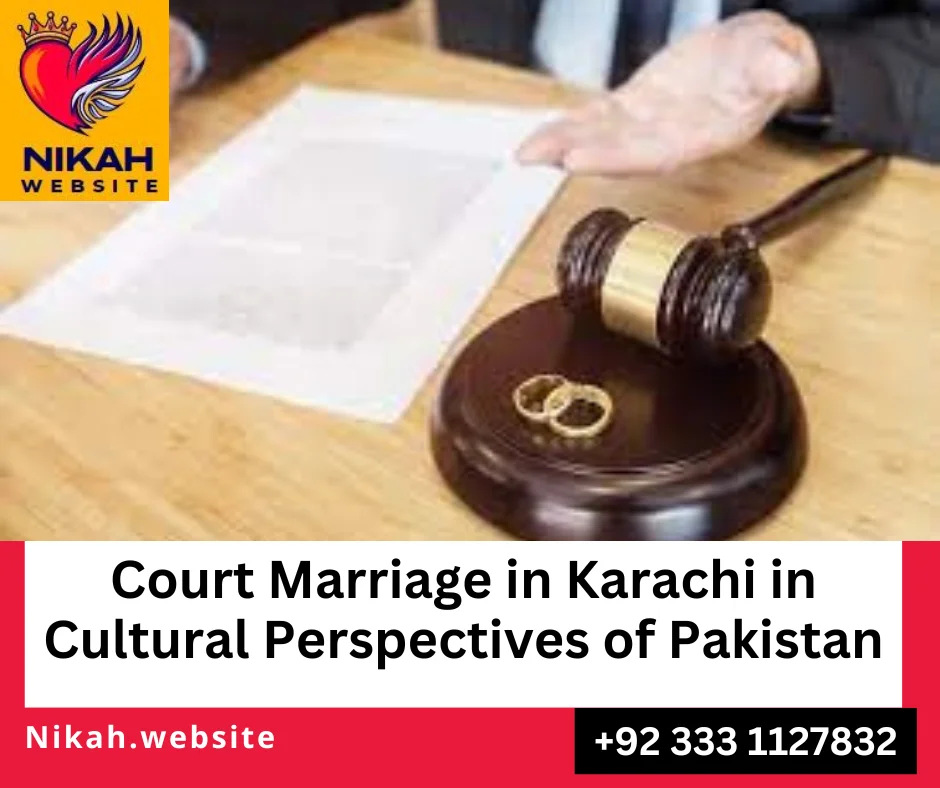

Overcoming Challenges in Court Marriage: Real-Life Experiences
Despite the challenges, many couples who opt for court marriage in Karachi have found ways to overcome these obstacles through resilience and communication. Open discussions with family members can help bridge the gap between tradition and modernity, allowing couples to explain their decision for a court marriage and potentially gain some level of understanding or acceptance.
Having a strong support network is equally essential. Friends and loved ones who back the couple’s choice for a court marriage can provide much-needed emotional support during times of stress or societal pressure. Additionally, couples who stay firm in their decision, equipped with legal knowledge and an understanding of their rights, are often better prepared to face the challenges of court marriage.
Engaging in dialogue with legal professionals, as well as seeking advice from others who have successfully navigated a court marriage, can also offer valuable guidance. Couples who confront societal norms with confidence and persistence are more likely to succeed in establishing a union that reflects their values and aspirations, despite the barriers they may face.
Building Resilience in Court Marriage
In short, while court marriage in Karachi offers a pathway for couples seeking independence and personal choice, it comes with a unique set of challenges. From family disapproval to societal stigma and legal complexities, couples need to be prepared to face these difficulties with open communication, resilience, and the support of those who understand their decision. By staying true to their commitment and confronting these challenges head-on, couples can pave the way for a successful and fulfilling court marriage, one that aligns with their personal beliefs and modern values.
The Future of Court Marriage in Karachi and Beyond
The concept of court marriage in Karachi is undergoing a significant transformation as societal norms evolve, legal reforms take shape, and public attitudes toward love marriages become more open. Traditionally, marriage in Pakistan has been strongly influenced by family and societal expectations, but the growing acceptance of personal choice in partner selection is paving the way for a new era in marriage practices. This shift in perspective is not only evident in Karachi but also in various other regions of Pakistan, where more couples are turning to court marriages as a means to formalize their unions.
The Rise of Personal Choice in Court Marriages
One of the key factors shaping the future of court marriage in Karachi is the increasing emphasis on individual autonomy and the freedom to choose a life partner. The younger generation, in particular, is moving away from the idea of arranged marriages dictated by family preferences, opting instead for marriages based on love, compatibility, and mutual understanding. Court marriage in Karachi has become a preferred choice for those who seek a legally recognized union without the traditional constraints or societal pressures.
This trend is expected to continue as more young people prioritize personal choice over conventional family expectations. The growing inclination towards love marriages, combined with the convenience and simplicity of court marriage, will likely lead to a substantial increase in the number of court marriages registered in the city. As these practices become more normalized, court marriage in Karachi will further solidify its place as a legitimate and widely accepted form of marriage.
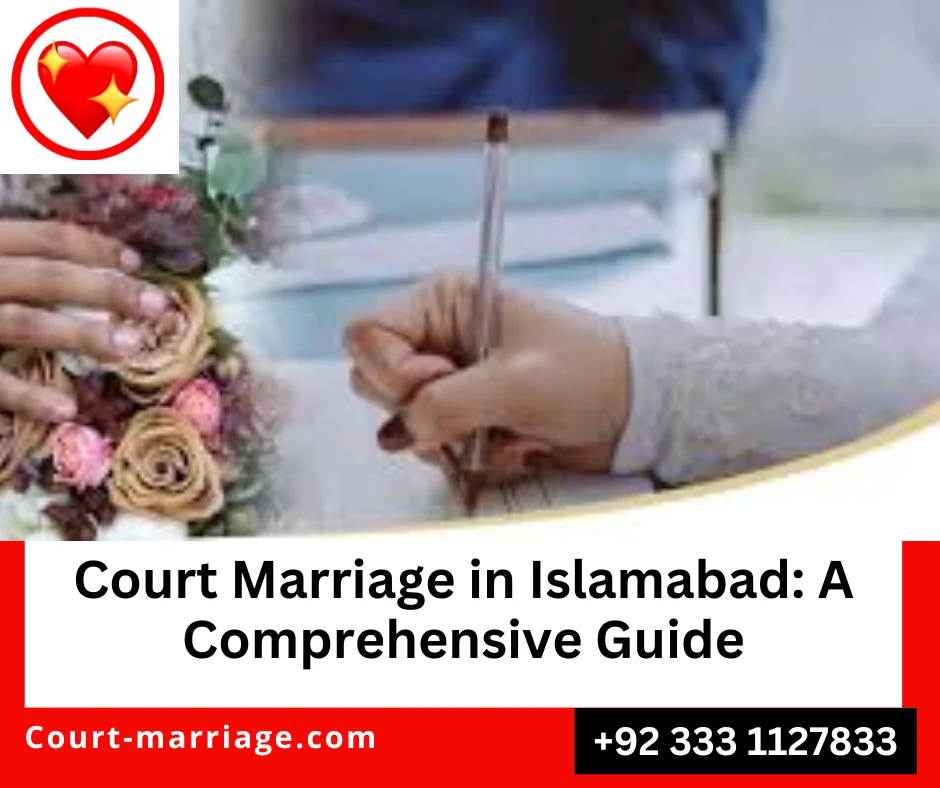
Legal Reforms and Simplification of the Court Marriage Process
Another significant driver of the future of court marriage in Karachi is the ongoing legal reforms aimed at simplifying the marriage registration process. The government and various non-governmental organizations are working towards streamlining the procedures associated with court marriages, making it more accessible and straightforward for couples to formalize their relationships. By reducing bureaucratic hurdles and improving access to information, the legal framework surrounding court marriage in Karachi is becoming more efficient and user-friendly.
These reforms are particularly important for couples who may not be fully aware of their legal rights or the steps involved in a court marriage. As information becomes more readily available, and resources are provided to guide individuals through the process, more people will feel empowered to pursue court marriage in Karachi. This increased awareness will likely contribute to a continued rise in the number of court marriages, reflecting a broader societal shift toward modern marriage practices.
The Role of Social Media in Shaping Perceptions of Court Marriage
In today’s digital age, social media plays a powerful role in shaping public perceptions and influencing societal attitudes. Discussions and portrayals of court marriages in Karachi on various online platforms are helping to normalize this option and present it as a viable and appealing choice for couples. As more individuals share their experiences and stories of court marriage, it helps to break down the stigma that may have previously surrounded such unions.
The visibility of court marriage in Karachi on social media also contributes to the broader cultural acceptance of love marriages, encouraging others to consider this option without fear of judgment or criticism. With online platforms fostering open dialogue about marriage choices, the future of court marriage in Karachi is likely to be marked by increasing mainstream acceptance, ultimately reshaping societal views on love, partnership, and marriage.
The Promising Future of Court Marriage in Karachi
The future of court marriage in Karachi is promising, as emerging trends and progressive reforms continue to redefine the institution of marriage. The growing acceptance of personal choice, combined with efforts to simplify the legalities surrounding court marriages, is creating a more favorable environment for couples to formalize their relationships on their terms. Furthermore, the influence of social media in promoting court marriage as a legitimate and empowering option is helping to reshape cultural attitudes across Karachi and Pakistan.
As these developments unfold, court marriage in Karachi will become an increasingly common and respected practice, allowing individuals to freely choose their life partners and assert their rights to marry without societal or familial constraints. This progressive shift represents a broader move towards modern, inclusive marriage practices that respect individual autonomy and embrace the evolving values of contemporary society.
In a nutshell, the future of court marriage in Karachi looks bright, as societal changes, legal reforms, and the power of social media converge to support the growing demand for love marriages and personal choice. As more people embrace the concept of court marriage, it will continue to redefine the way marriage is perceived in Karachi and beyond, offering couples the freedom to shape their marital journeys.

